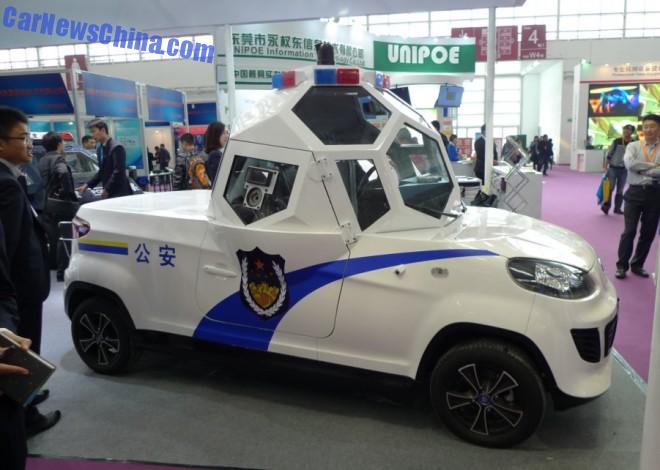Over the past few years, both national and state Chinese governments have heavily subsidized electric cars in an aggressive attempt to promote mass adoption.
Electric cars are seen as an important way to combat the country's notorious air pollution, and develop the domestic auto industry.
So far, the various subsidies and purchase incentives have led to a significant increase in sales of plug-in cars.
DON'T MISS: China tweaks electric-car plans to reward success, reduce fraud
But the national government has also become aware of widespread cheating by automakers that receive incentives to build these cars.
So it now plans to tighten technical requirements for the types of vehicles eligible for subsidies, reports Reuters.
Beijing has so far accused five companies of violating rules related to subsidies, and has hinted at cheating by others.

BYD e6 electric taxi in service in Shenzhen, China
State media has accused an additional 20 companies of cheating.
To address this, several changes to the subsidy will be enacted soon, the Ministry of Industry and Information Technology said in a statement released Wednesday.
Changes will include limits on subsidy amounts, and more rigorous application and inspection procedures.
ALSO SEE: Armored Electric Chinese Police Patrol Car Is ... Words Fail Us (Dec 2014)
Subsidies will also now be awarded "retroactively," the Ministry said.
The government has already elected not to renew the current subsidies—which are widely credited with driving a fourfold increase in plug-in car sales last year—after they expire in 2021.
Subsidy amounts will gradually be lowered over the next few years before that cutoff point.

Zijing Qingyuan Armored Spherical Cabin Electric Patrol Vehicle. Photo by CarNewsChina.com.
Officials believe alternative uses for funding can be found that will help promote electric cars without the fraud associated with the subsidy program.
That could include redirecting funds to research into relevant technologies such as batteries.
Another issue is the lack of strict technical standards for the vehicles themselves.
MORE: China to regulate, rein in low-speed electric cars used in rural areas
A large portion of the vehicles included in Chinese new-car sales tallies are low-speed electric vehicles that would not meet U.S. standards for highway-capable cars.
While this likely won't change, the government does at least plan to regulate low-speed electric vehicles.
The lack of regulations has led to the proliferation of cheaply-made vehicles, some of which use lead-acid batteries.
[hat tip: Brian Henderson]
_______________________________________________












